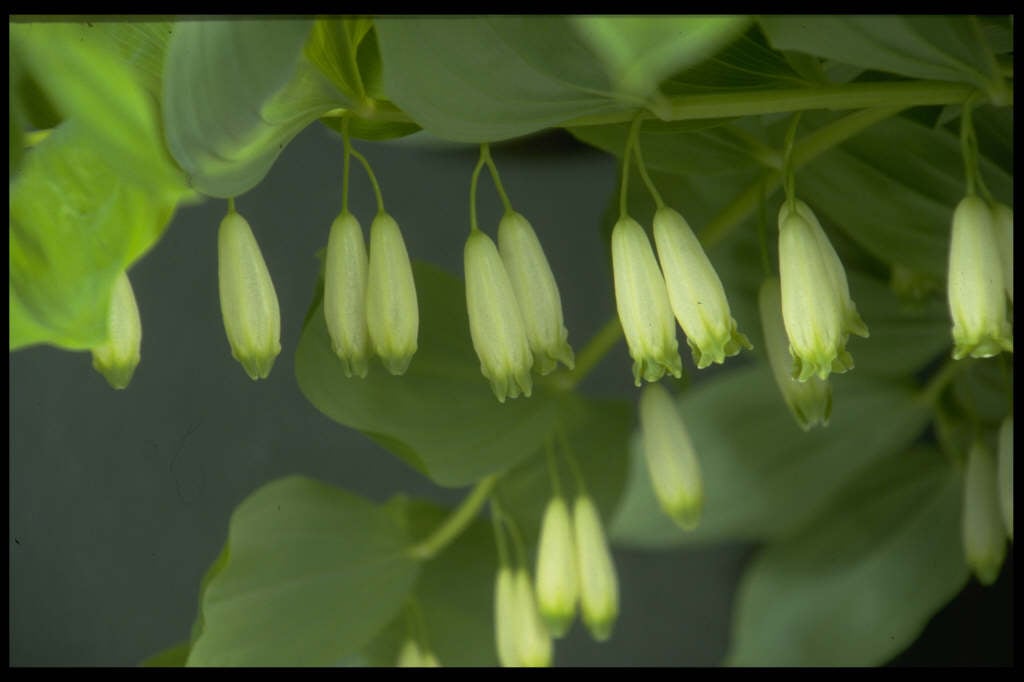Polygonatum odoratum
angular Solomon's seal
A perennial with arching stems bearing elliptic leaves and, in each axil, one or two fragrant, tubular, green-tipped, creamy-white flowers
Other common names
angled Solomon's sealSynonyms
Polygonatum vulgarePolygonatum japonicum
see moreConvallaria polygonatum
Polygonatum officinale

Buy this plant
Size
Ultimate height
0.5–1 metresTime to ultimate height
2–5 yearsUltimate spread
0.1–0.5 metresGrowing conditions
Moisture
Moist but well–drainedpH
Acid, Alkaline, NeutralColour & scent
| Stem | Flower | Foliage | Fruit | |
| Spring | Cream Green | Green | ||
|---|---|---|---|---|
| Summer | Cream Green | Green | ||
| Autumn | Green | Black | ||
| Winter |
Position
- Full shade
- Full sun
- Partial shade
Aspect
South–facing or North–facing or West–facing or East–facing
Exposure
Sheltered Hardiness
H7Botanical details
- Family
- Asparagaceae
- Native to GB / Ireland
- Yes
- Foliage
- Deciduous
- Habit
- Spreading branched
- Potentially harmful
- Harmful if eaten. Wear gloves and and other protective equipment when handling TOXIC to pets if eaten (dogs) - see the HTA guide to potentially harmful plants for further information and useful contact numbers
- Genus
Polygonatum are rhizomatous herbaceous perennials with erect or arching stems bearing glossy, elliptic leaves and pendent, tubular or bell-shaped flowers, sometimes followed by black or red berries
- Name status
Correct
- Plant range
- Europe to Japan
How to grow
Cultivation
Grow in any fertile, humus-rich, moist but well-drained soil in full sun, partial shade or shade
Propagation
Propagate by division in spring taking care not to damage young brittle shoots
Suggested planting locations and garden types
- Cut flowers
- Flower borders and beds
- Underplanting of roses and shrubs
Pruning
Cut back to the base in late autumn
Pests
May be susceptible to slugs and solomon's seal sawfly
Diseases
Generally disease-free
Get involved
The RHS is the UK’s gardening charity, helping people and plants to grow - nurturing a healthier, happier world, one person and one plant at a time.